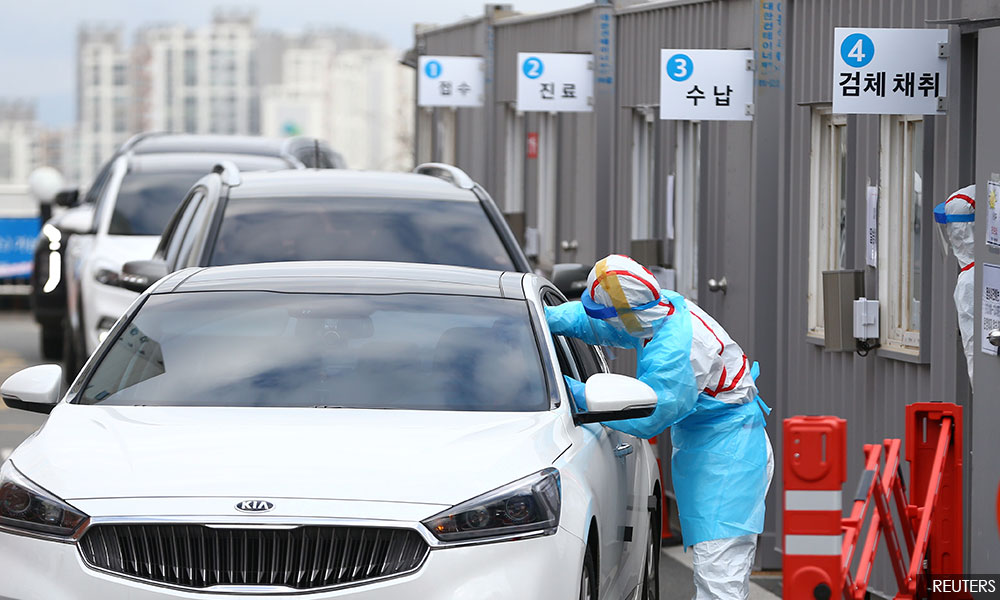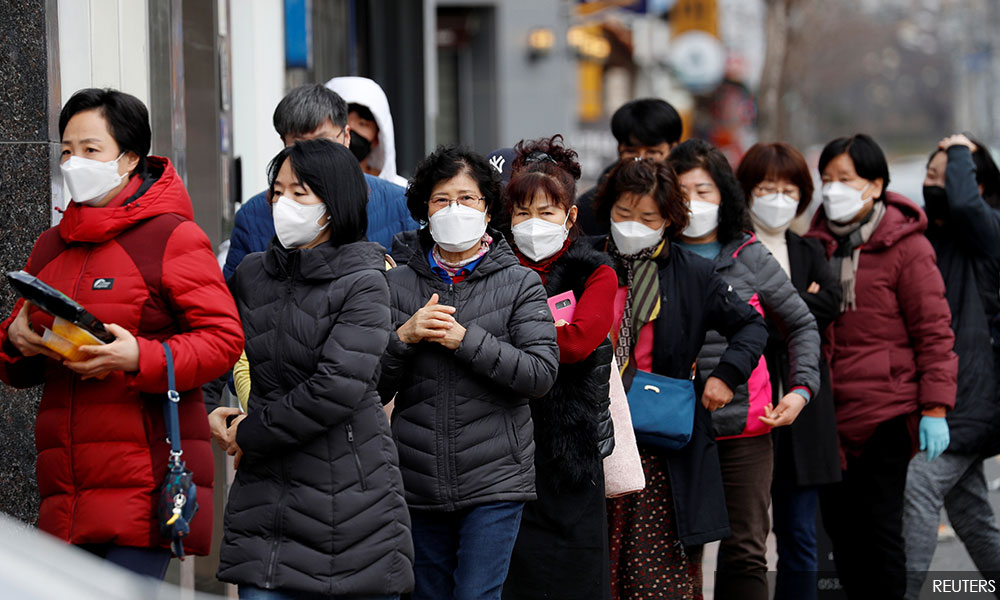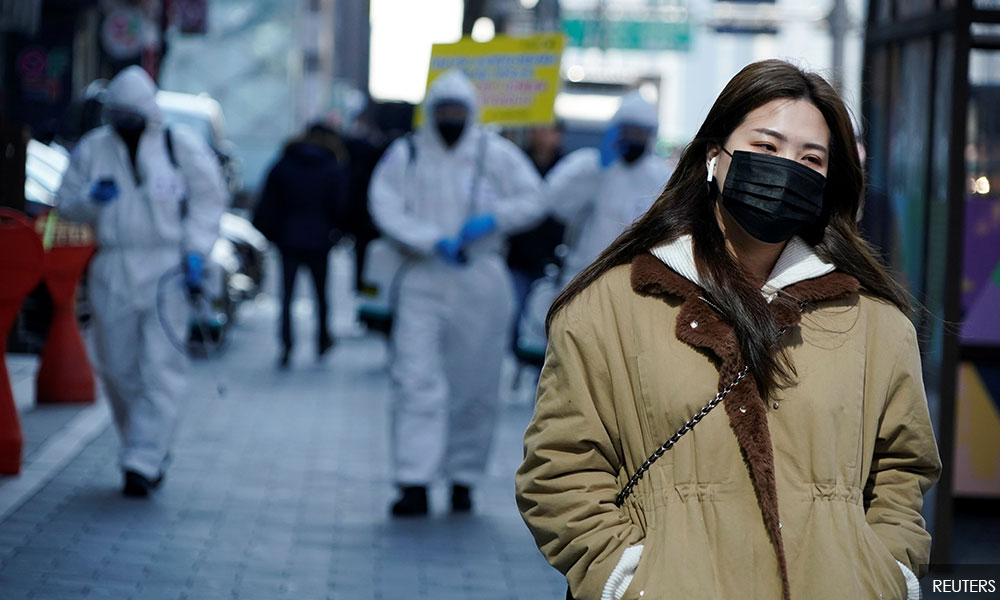COMMENT | In the effort to control the novel coronavirus outbreak, authorities are restricting freedoms of movement and association. They are enforcing local or nationwide curfews and lockdowns that will inevitably have adverse economic impacts, especially for small businesses relying on cash flow.
The big picture is telling. As reported by the World Health Organization, known global infections now exceed 200,000, while fatalities remain under 9,000, or 0.00001% of the world’s population.
While Covid-19 is a highly infectious but low-mortality illness, many governments are benchmarking their responses on the very worst outbreaks in Wuhan and northern Italy.
Meanwhile, worst-case scenarios are being bandied about and echoed by the media, especially the social media, panicking the public. Could there be another way to bring the virus under control – without lockdowns or travel bans?
Ignored success story
Much of the world is promulgating extreme measures while overlooking the Korean experience, as highlighted by Andrew Salmon in the Asia Times. Until last week, South Korea is the second-most infected country in the world.
It has now fallen to fifth place on infection charts behind China, Italy, Iran and Spain, and is an example of pandemic control without draconian measures of dubious efficacy.
South Korea’s numbers for new infections slipped from the high hundreds last week to double digits this week. It has the lowest mortality percentage – 0.7% – among all countries that have suffered significant Covid-19 outbreaks.
It has managed these outcomes without locking down even its most affected city, Daegu. While taking sensible precautions, it has not stifled social and economic activity and has barely imposed any travel bans.
Pandemic management, Korean-style
Korea mass tested up to 20,000 people daily, followed by early-stage isolation and treatment. It has cleverly leveraged on technology, from drive-through test centres to self-monitoring apps.

Korean governments have long had a ‘nanny state’ approach in the name of development. Hence, there have been few complaints about invasions of privacy, for example, when big data and GPS are used.
Many Koreans habitually wear dust masks to fend off pollution. Given their near-universal use, those with the virus, but asymptomatic, have not infected others.
South Korea is, geopolitically, an island, surrounded on most sides by sea, and to the north by a militarised border. It has effectively put health monitoring facilities and programmes at all ports of entry.
The overriding principle is democratic governance. A senior government official claims, “Korea is adopting a different model for responding to contagious disease outbreaks. The key tenet of our model can be defined as a ‘dynamic response system for open democratic societies’.”
Path not taken
So, what has South Korea not done? It has not suppressed anyone, not even the religious sect that started mass infection, and no lockdowns.

Although Koreans are subject to travel bans, restrictions and quarantines by more than 100 countries, the country has only halted incoming travellers from Hubei province, where Wuhan is, and Japan, the latter for political reasons. All incoming travellers are screened on entry and provided with monitoring apps.
While mass gatherings are halted, and museums, schools and universities are closed, shops, cafes, bars and gyms remain open. There has been no panic buying.
To be sure, there has been economic damage and additional budgetary and other costs. Downtown shopping malls are nearly empty, and there have been job lay-offs. Small businesses – taxis, shops, cafes and restaurants – complain revenues are down by half or more.
Panic mode
Extreme decisions single-mindedly prioritising virus control while the global economy is fast declining – due to the disruption of China’s supply chains, lower oil prices and other market shocks – have only made things worse.
In this situation, lockdowns are a blunt ‘one-size-fits-all’ response not focused on key at-risk populations, namely those with pre-existing health conditions (for example, those with heart disease, respiratory problems and compromised immune systems) and the aged. Why are resources and arrangements not being tailored to the most vulnerable?
Essential hygiene, social distancing, caution and monitoring arrangements to protect them should be added to existing family care and social protection arrangements. Greater attention to the needs of the aged should emerge from the Covid-19 crisis experience.
With this focus, the young and healthy at low risk could continue economic activity with minimally disruptive precautionary measures such as adequate distancing and hygienic practices. But instead, lockdowns have become the norm.

Meanwhile, travel, tourism, hospitality, retail, leisure, sport and entertainment are all in serious trouble. Big players, such as airlines, will likely benefit from bailouts.
But these activities mainly involve small, family-run businesses needing cash flow: shops, restaurants, cafes and leisure operations. The hit to such small operations is tremendous.
Virus vs recession
Recessions mean income losses, redundancies, bankruptcies, business closures, poverty, shattered hopes, premature deaths and related traumas. A Covid-19-prompted recession now looks certain. How long it will last is unknown.
Those at mortal virus risk fall into certain percentiles, while those at risk of the economic recession are far more, potentially killing even more than the virus.
National governments should therefore be more focused in addressing the Covid-19 threat. They need to calibrate risks, prioritise aims and consider all options from multiple perspectives before acting with prudence, not panic.
The governments of South Korea, Japan and Taiwan have done so in the face of this pandemic and evidence suggests they have been more successful than many other developed nations. Thus, looking East may be more appropriate this time round.
WAN MANAN WAN MUDA was professor of nutrition and public health at Universiti Sains Malaysia while NAZIHAH NOOR holds a Master of Public Health and a BSc in Biomedical Science (Global Health) from Imperial College London. Both are associated with Khazanah Research Institute, but do not implicate KRI with the views expressed here.

